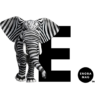
How Much Cash Do You Need to Start a Small Business?
How Much Cash Do You Need to Start a Small Business?
By:
Starting a business is exciting. But before you get overly excited about the money you will make, you need to get the venture off the ground.
Despite all the things you may have heard about starting a business with no money, most new enterprises do require an initial investment.
The U.S. Small Business Administration (SBA) estimates that the average start-up cost for a micro business is $3,000. For a home-based franchise, the SBA estimates start-up costs of $2,000 to $5,000.
However, every business is different.
Consequently, you would be well-advised to ignore any start-up cost estimates you may find on the web. Instead, start with a blank worksheet and create a start-up budget and cash-flow forecast for your new business.
Here are some tips for calculating how much start-up cash you need for your new business.
Differentiate One-Off and Ongoing Costs
There are two types of costs that you will need to consider. The first is the one-off costs of setting up the operation. The second is the ongoing running costs of the business that must be covered while the venture gets off the ground.
The start-up costs will need to be paid before the business makes its first sale. Sales may partially fund the ongoing expenses in the first few months. Of course, sales will, hopefully, exceed ongoing costs when the business is up and running.
It is best to separate these two expense types in your start-up budget, perhaps in a separate column on your monthly budget spreadsheet.
Identify Fixed and Variable Costs
Another critical cost differentiation when preparing a start-up budget is the difference between fixed and variable costs.
Fixed costs are those that do not vary with sales. For example, rental payments for business premises will be payable regardless of sales volume.
Variable costs, such as raw materials, on the other hand, vary with sales or production.
It’s also advisable to separate these two types of costs in a start-up budget. Then you can consider what-if cash-flow requirements.
For example, how much cash would be required to meet fixed costs if there is a delay in achieving sales targets?
Take a Prudent Approach
It is advisable to apply the accounting concept of prudence when preparing a start-up budget.
For example, be realistic about sales forecasts, and don’t underestimate how long it might take to gain your first customer. Try to identify all the potential costs of setting up and running the business and overstate expenses rather than underestimate them.
Forecast Cash Flow
You will need two types of projections, a budget and a cash-flow forecast. The budget will be prepared according to accounting principles, recognizing income and expenditure as incurred.
The cash-flow forecast will show income and expenditure as it is paid.
Understanding the difference between the two is critical. For example, sales will be recognized in the budget when an invoice is raised.
However, the cash from a sale will not be received in the bank until the customer settles their invoice. And fixed assets are written off over their useful life in a budget.
Still, the purchase price is generally paid upfront.
Consequently, it will be the cash-flow forecast rather than the budget that will reveal how much money you need to fund a start-up.
Types of Start-Up Costs to Consider
The types of start-up costs will, of course, vary for each business.
Nevertheless, the broad categories of expenses likely to be incurred are listed below. It’s generally best to list costs in detail to avoid missing anything.
A “sundry” or “other costs” category is a good idea. Still, avoid lumping too many items together in a miscellaneous category.
Business Premises
A high cost for some types of businesses will be the cost of business premises. Under this category, you will have both start-up costs and ongoing costs. The start-up costs might include a deposit, rental payments in advance, and legal fees if you are renting. The ongoing cost will be the monthly or quarterly rent. If you purchase premises, you will have the purchase price, legal fees, and possible renovation costs as a start-up cost and maintenance as an ongoing cost.
Website
Every business needs a website in today’s digital world. It’s well worth investing in a professionally developed site if you have no web development experience. The cost of a business website could be anywhere from $200 to $20,000. The price will depend on the number of pages and the complexity of the site. The ongoing costs will be limited to domain renewal, hosting, and, perhaps, updates and support.
Tools, Equipment, and Machinery
You may also need to buy tools, equipment, and/or machinery. Most of this outlay will be a one-off investment, followed by maintenance and repair costs and periodic replacement. For large items of machinery and equipment, leasing might be a cost-effective way to reduce the initial outlay. Or a contract/hire option may be available, which generally includes the maintenance costs.
Motor Vehicles
Some businesses will require motor vehicles. As with equipment, leasing, and contract/hire options will reduce the initial outlay on cars and trucks. If you purchase or hire vehicles, you will also need to budget for the running costs, insurance, and repairs.
Inventory
If you are selling or making a product, you will need to factor an initial inventory into your start-up costs. Stock will not appear in your budget until the goods have been sold. But it will impact your cash-flow forecast when the item invoices are paid. Moving forward, the cost of inventory will be one of the ongoing costs of goods sold.
Marketing and Advertising
Marketing and advertising will be one of your ongoing costs. But you may also plan some one-off launch marketing campaigns, which will be one of your start-up costs. You may also need to buy initial stock marketing collateral, such as flyers, signage, and product brochures. Other printing costs to consider are stationery, product packaging, user manuals, and other forms.
Office Furniture and Equipment
Whether you work from home or rent an office, you will probably need office equipment. At the very least, a desk, chair, telephone, and a filing cabinet or two. It would probably be worth investing in a security safe, too, if you intend to hold cash or valuable documents. Renting space in a serviced office facility is a good alternative for small businesses. Serviced offices usually include furniture and access to photocopiers, telephone answering services, and broadband connection. Consequently, the initial outlay is reduced, but you may be required to pay a deposit.
Computer Hardware and Software
You will need a computer and broadband connection for almost any type of business. If you have employees, you will, of course, require multiple computers, and a file server, and you may need network cables installed in your business premises. Physical stores will also need point-of-sale (POS) hardware. As for software, you will almost certainly need Microsoft Office and an accounting package. You may also need industry-specific software. To reduce the initial outlay, you could consider leasing or renting hardware. And most business applications are now available on a software as a service (SAS) basis, so you pay a monthly fee rather than a one-off license purchase.
Licenses, Permits, and Insurance
Other costs to consider include licenses and permits, which will be specific to your industry. It is also advisable to get all the relevant insurance in place from day one. Typically, a business will need property liability, business auto, workers’ compensation, employment practices liability, and directors’ and officers’ liability insurance. An insurance advisor or broker will advise you on the specific policies you need.
Working Capital and Cash Reserve
Unless you are incredibly fortunate, your start-up cash-flow forecast will show a deficit for at least the first few months. And that shortfall will require funding. The maximum monthly deficit on your forecast will need to be added to your other start-up costs. However, running any business with no room to maneuver is not advisable. Consequently, it is prudent to maintain a cash reserve to cover the unexpected.
Conclusion
The above is not an exhaustive list of start-up expenses. There will be other costs specific to your business, and some of the items mentioned may not be applicable. Hopefully, though, this article will provide you with the bare bones of what you need to consider when calculating how much cash you need to start your new venture.


